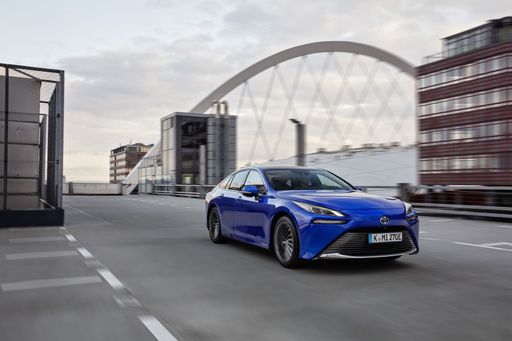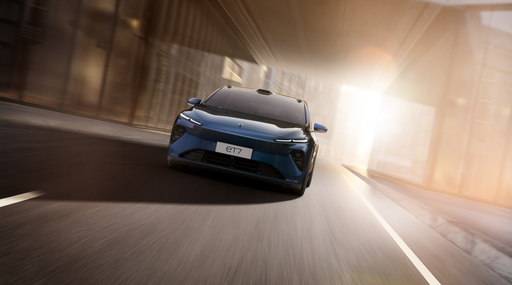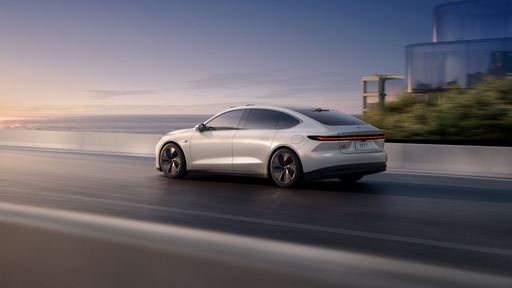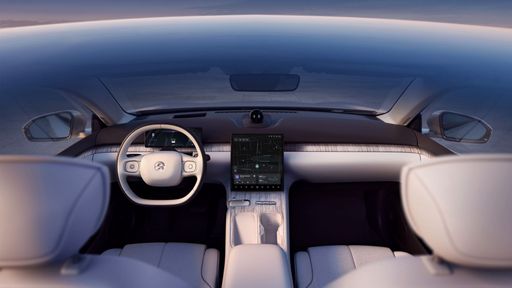Toyota Mirai vs NIO ET7 – Differences & prices compared
Everyday use, family trips or long-distance drives – here’s where the differences show.
Discover whether Toyota Mirai or NIO ET7 fits your lifestyle better.
Here’s where it gets real: The technical differences in detail
Costs and Efficiency: Looking at overall running costs, both models reveal some interesting differences in everyday economy.
Toyota Mirai has a barely noticeable advantage in terms of price – it starts at 58700 £, while the NIO ET7 costs 59900 £. That’s a price difference of around 1209 £.
As for range, the Toyota Mirai performs a bit better – achieving up to 650 km, about 66 km more than the NIO ET7.
Engine and Performance: Power, torque and acceleration are the classic benchmarks for car enthusiasts – and here, some clear differences start to show.
When it comes to engine power, the NIO ET7 has a convincingly edge – offering 653 HP compared to 182 HP. That’s roughly 471 HP more horsepower.
In acceleration from 0 to 100 km/h, the NIO ET7 is decisively quicker – completing the sprint in 3.80 s, while the Toyota Mirai takes 9.20 s. That’s about 5.40 s faster.
In terms of top speed, the NIO ET7 performs somewhat better – reaching 200 km/h, while the Toyota Mirai tops out at 175 km/h. The difference is around 25 km/h.
There’s also a difference in torque: the NIO ET7 pulls clearly stronger with 850 Nm compared to 300 Nm. That’s about 550 Nm difference.
Space and Everyday Use: Beyond pure performance, interior space and usability matter most in daily life. This is where you see which car is more practical and versatile.
Both vehicles offer seating for 5 people.
In curb weight, the Toyota Mirai is evident lighter – 1900 kg compared to 2434 kg. The difference is around 534 kg.
In terms of boot space, the NIO ET7 offers a bit more room – 363 L compared to 300 L. That’s a difference of about 63 L.
When it comes to payload, Toyota Mirai hardly perceptible takes the win – 515 kg compared to 466 kg. That’s a difference of about 49 kg.
Our conclusion: The NIO ET7 proves to be wins the duel decisively and thus becomes our DriveDuel Champion!
Overall, NIO ET7 is the better all-rounder in this comparison.
Toyota Mirai
The Toyota Mirai represents a groundbreaking step in hydrogen fuel cell technology, offering an eco-friendly alternative to traditional petrol engines. Its sleek design and futuristic aesthetic make it a standout on the road, while the interior combines comfort with cutting-edge features. With its impressive range and quick refuelling capabilities, the Mirai is paving the way for the future of sustainable motoring.
details @ Toyota
@ Toyota
NIO ET7
The ET7, NIO's premium electric sedan, combines cutting-edge technology with luxurious comfort to create a remarkable driving experience. Its sleek design is not only visually captivating but also enhances aerodynamic efficiency, contributing to its impressive performance. With a focus on sustainability, the ET7 promises to redefine the landscape of electric mobility with its innovative features and environmentally-friendly credentials.
details @ NIO
@ NIO
 @ NIO
@ NIO
 @ NIO
@ NIO

|

|
|
|
|
Costs and Consumption |
|
|---|---|
|
Price
58700 - 66700 £
|
Price
59900 - 68900 £
|
|
Consumption L/100km
-
|
Consumption L/100km
-
|
|
Consumption kWh/100km
-
|
Consumption kWh/100km
19 - 19.3 kWh
|
|
Electric Range
650 km
|
Electric Range
451 - 584 km
|
|
Battery Capacity
-
|
Battery Capacity
73.5 - 90 kWh
|
|
co2
-
|
co2
0 g/km
|
|
Fuel tank capacity
5 L
|
Fuel tank capacity
-
|
Dimensions and Body |
|
|---|---|
|
Body Type
Sedan
|
Body Type
Sedan
|
|
Seats
5
|
Seats
5
|
|
Doors
4
|
Doors
4
|
|
Curb weight
1900 - 1930 kg
|
Curb weight
2434 - 2454 kg
|
|
Trunk capacity
300 L
|
Trunk capacity
363 L
|
|
Length
4975 mm
|
Length
5101 mm
|
|
Width
1885 mm
|
Width
1987 mm
|
|
Height
1470 mm
|
Height
1509 mm
|
|
Max trunk capacity
-
|
Max trunk capacity
-
|
|
Payload
485 - 515 kg
|
Payload
446 - 466 kg
|
Engine and Performance |
|
|---|---|
|
Engine Type
Hydrogen
|
Engine Type
Electric
|
|
Transmission
Automatic
|
Transmission
Automatic
|
|
Transmission Detail
Reduction Gearbox
|
Transmission Detail
Reduction Gearbox
|
|
Drive Type
Rear-Wheel Drive
|
Drive Type
All-Wheel Drive
|
|
Power HP
182 HP
|
Power HP
653 HP
|
|
Acceleration 0-100km/h
9.20 s
|
Acceleration 0-100km/h
3.80 s
|
|
Max Speed
175 km/h
|
Max Speed
200 km/h
|
|
Torque
300 Nm
|
Torque
850 Nm
|
|
Number of Cylinders
-
|
Number of Cylinders
-
|
|
Power kW
134 kW
|
Power kW
480 kW
|
|
Engine capacity
-
|
Engine capacity
-
|
General |
|
|---|---|
|
Model Year
2021 - 2022
|
Model Year
2022
|
|
CO2 Efficiency Class
-
|
CO2 Efficiency Class
A
|
|
Brand
Toyota
|
Brand
NIO
|
What drive types are available for the Toyota Mirai?
Available configurations include Rear-Wheel Drive.
The prices and data displayed are estimates based on German list prices and may vary by country. This information is not legally binding.
